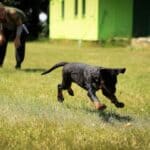
Have you run out of still water and you don’t know whether to give your cat the soda? Let’s see what effect carbonated drinks have on cats and what to know about any risks.
Can fizzy water, beer and other soft fizzy drinks be bad for our kitty? Cats, as we know, always love to taste new flavors because they are very intrigued by everything that surrounds them. If we add the fact that some of these have ‘attractive’ colors and an unusual scent, that’s it. It will only take a moment of distraction from its owner, which the cat will seize on the fly to taste. So what happens if we give fizzy drinks to the cat and what effect do they have on the cat’s body? All the answers below.
‘Playing’ changing cat foods: why it can be dangerous
All owners like to live new and different experiences with their feline friend, and sometimes the curiosity to see what effect something has on our cat can lead to unconscious attitudes.
Especially as regards its nutrition, the cat’s foods must always be chosen according to precise rules and appropriate to its size, its age and its state of health. So we never think about giving him leftovers from our dinner and resist the temptation to let him taste anything.
This desire to ‘experiment’ could have very negative, and even tragic, implications for his health: so better not risk it! In fact, his organism works in a totally different way from ours and certainly does not have the same ability to digest the same meal. Precisely for this reason it is good to ask yourself if carbonated drinks are bad for the cat, before ‘playing’ to make him taste them.
Cat fizzy drinks: effects and contraindications
If the cat is a very curious animal, fortunately, it is also very fond of its food routines: it does not like sudden changes in its diet both in terms of meal times and in terms of the choice of food. But the fact remains that the cat may want to taste carbonated drinks, because intrigued by the color, by the fizz of those bubbles but also, once tasted, by their taste.
If we like drinking fizzy drinks a lot, the risk that your cat likes them is also high. Anything we give him instead of still water (unless it is broth) and which contains bubbles can be harmful to his health, due to the negative effects it has on his body.
In reality, abusing them is not good for us either, precisely because of their ingredients:
- carbon dioxide,
- sugars,
- preservatives,
- dyes,
- sweeteners.
Carbonated drinks for cats: dangerous elements for cats
What do carbonated drinks contain that are so dangerous for cat’s health? Those that can damage the cat’s organism, with effects that we will see later, are:
- sugars,
- Acid pH,
- caffeine.
In particular, it is the sugars that are ‘condemned’: they are the ones who make the drinks so sweet and irresistible to our palate (and also to that of the cat). Not to mention the chemicals that can be added to give a ‘distant’ taste of fruit: in reality fruit is often not absolutely contemplated in the preparation of these drinks or it is in a small percentage.
Sugars carry excessive calories, far more than the cat should be disposing of. They would then accumulate in his body and would form fat, with a high risk of obesity in the cat but also of feline diabetes.
Acids with PH 2.4 create severe damage to the digestive system, preventing it from proper digestion; caffeine, on the other hand, leads to a state of uncontrolled excitement and gives rise to the first symptoms of cat poisoning.
Sweeteners and other added chemicals can also promote the development of tumors: are you still sure that giving fizzy drinks to your cat is a good idea? If you are still not persuaded by the idea, let’s see what are the damage of these on the cat’s body.
Carbonated drinks for the cat: the damage to his organism
In addition to the damage caused by sugars, with the risk of obesity and even diabetes in cats, the acid PH of the same drinks with bubbles can have negative effects on the feline digestive process but also on its teeth.
Tooth enamel may deteriorate and gradually leave the root of the tooth uncovered, as well as the risk of tooth decay caused by sugars. The risk of infections due to food residues, bacteria and other pathogens is high.
Caffeine has negative effects on the heart system, because it is a strong stimulant: it is no coincidence that some humans drink drinks that contain it when we want to be particularly active and awake. This state of arousal can even cause intoxication, seizures and convulsions, as well as episodes of vomiting, nausea and diarrhea.
Bones can also be damaged by phosphoric acid, which slows the absorption of calcium. The bones therefore risk becoming more fragile and more at risk in the event of trauma or other accidents.
What can cats drink?

The answer may seem trivial but it is: (still) water, the one that flows from our taps or bottled water. And we recommend: that it is always fresh and clean! We do not think about leaving the water in the cat bowl for days: the cat would reject it in indignation. And if the cat stops drinking, the risk of dehydration is very high.
However, if we are absent most of the day and we cannot always refuel our cat with fresh water, then it is the case to buy an automatic dispenser: there are on the market both for water and for baby food. It will be the cat itself, with a simple movement of the paw, to activate the fountain from which it can comfortably drink.






